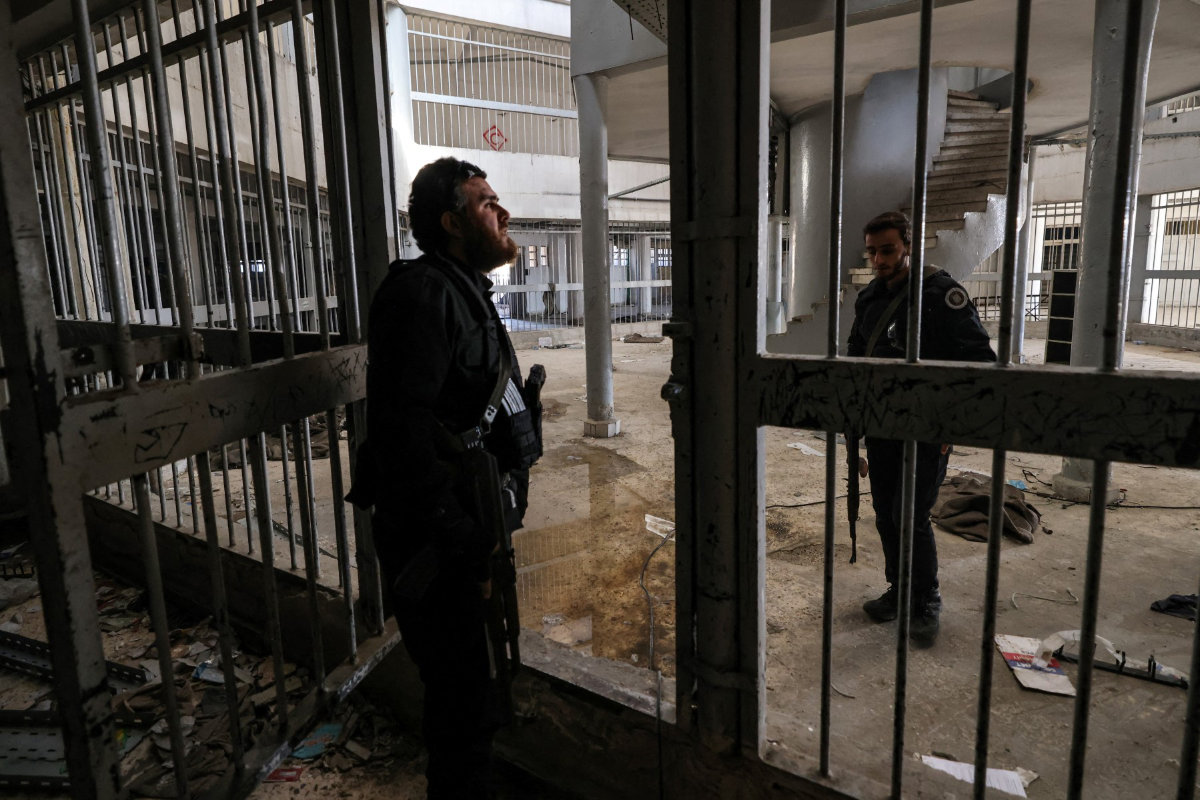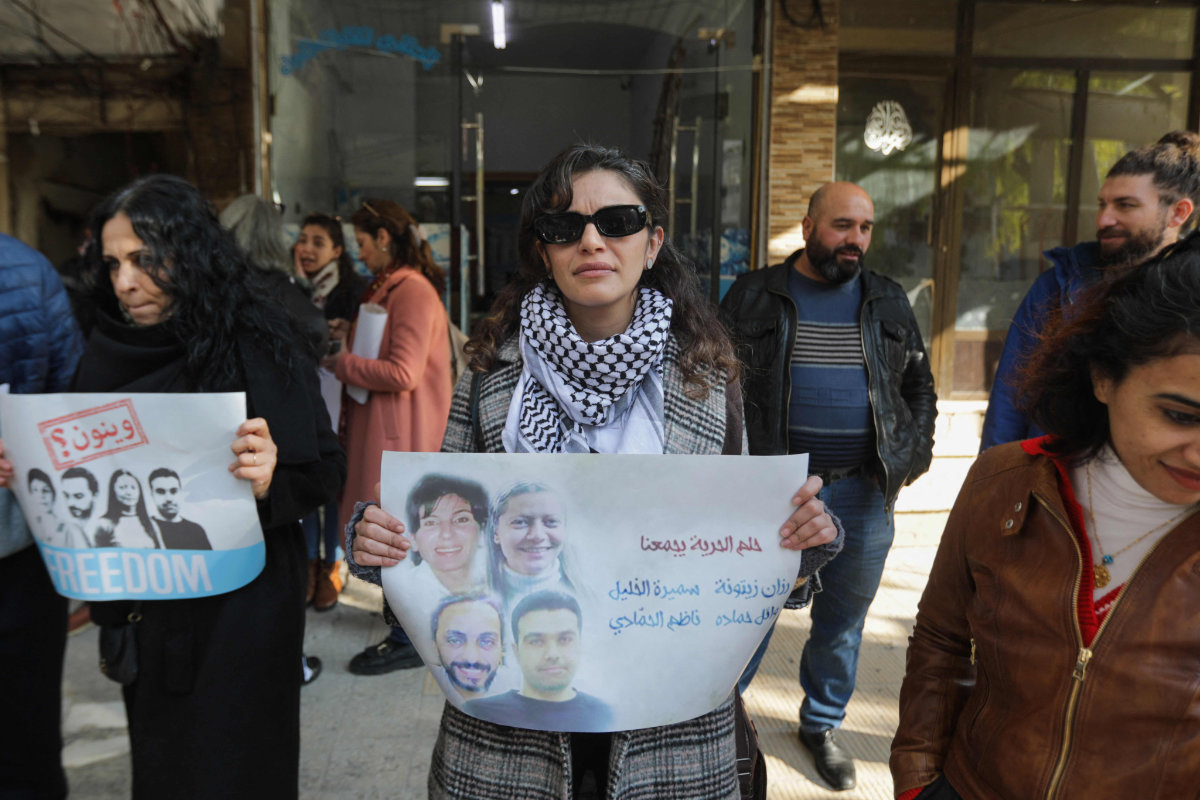RIYADH: Saudi Arabia’s King Salman and Crown Prince Mohammed bin Salman offered their condolences to Iran after the death of President Ebrahim Raisi in a helicopter crash which also killed Foreign Minister Hossein Amirabdollahian, Saudi Press Agency reported on Monday.
UAE President Sheikh Mohamed bin Zayed on X said: “I extend my deepest condolences to the Iranian government and people over the passing of President Ebrahim Raisi, Foreign Minister Hossein Amir-Abdollahian, and those accompanying them following a tragic accident. We pray that God grants them eternal rest and we extend our heartfelt sympathies to their families. The UAE stands in solidarity with Iran at this difficult time.”
UAE Prime Minister and Dubai Ruler Sheikh Mohammed bin Rashid also posted on X: “Our condolences and sincere sympathies to the brotherly Iranian people and their leadership on the death of Iranian President Ebrahim Raisi and his Foreign Minister in a painful accident. Our hearts are with you in this difficult time. Our prayers are that God will cover them with His vast mercy and dwell them in His spacious Paradise.”
Iran’s Supreme Leader Ali Khamenei expressed on Monday his condolences, state media said.
Russian foreign minister Sergei Lavrov, in a statement said: “Raisi and Abdollahian were known as “true, reliable friends of our country”.
“Their role in strengthening mutually beneficial Russian-Iranian cooperation and trusting partnership is invaluable.
“We sincerely extend our condolences to the families and friends of the victims, as well as to the entire friendly people of Iran. Our thoughts and hearts are with you in this sad hour.”
Russia’s embassy in Tehran also offered condolences over Raisi’s death, state news agency TASS reported.
China’s President Xi Jinping has expressed condolences over Raisi’s death, the Chinese foreign ministry said on Monday.
Turkish President Tayyip Erdogan on Monday expressed his condolences for the death of Raisi and Amirabdollahian, saying Raisi was a “valuable colleague and brother”.
“As a colleague who personally witnessed his efforts for the peace of the Iranian people and our region during his time in power, I remember Mr. Raisi with respect and gratitude,” Erdogan said on social media platform X, adding Turkey stood by Iran in this difficult time.
Turkish foreign minister Hakan Fidan also extended condolences to the Iranian people on the death of Raisi and Amirabdollahian.
The Emir of Qatar Sheikh Tamim bin Hamad on X said: “Sincere condolences to the government and people of the Islamic Republic of Iran on the death of President Ebrahim Raisi, Foreign Minister Hossein Amir Abdullahian, and the accompanying officials in the painful helicopter accident, asking God Almighty for mercy and forgiveness for them and for their families with patience and solace. We belong to Allah and to Him we shall return.”
Egypt’s president Abdel Fattah El-Sisi on Monday extended his condolences for the deaths of Raisi and Amirabdollahian in a helicopter crash.
“Egypt mourns, with great sadness and grief” the Iranian president and Tehran’s top diplomat, “who passed away on Sunday following a painful accident,” the presidency said in a statement.
Iraqi Prime Minister Mohammed Shia Al-Sudani said in a statement: “With great sadness and sorrow, we have received the news of the death of the President of the Islamic Republic of Iran, Ebrahim Raisi, and the Minister of Foreign Affairs, Hossein Amir-Abdollahian, along with their companions, in the unfortunate plane crash in northern Iran.”
He added, “We extend our sincere condolences and sympathy to the Supreme Leader of the Islamic Republic, Mr. Ali Khamenei, and to the government and people of Iran. We express our solidarity with the brotherly Iranian people and the responsible officials in the Islamic Republic during this painful tragedy.
“We ask God to have mercy on the departed, and may He grant patience and solace to their families and loved ones.”
Syrian President Bashar Assad in a statement also offered condolences to Iran’s Supreme Leader over death of the president and the foreign minister.
Indian Prime Minister Narendra Modi said Monday he was “deeply saddened and shocked by the tragic demise” of Raisi after Iranian media reported he had died in a helicopter crash.
“My heartfelt condolences to his family and the people of Iran,” Modi posted on X, formerly Twitter. “India stands with Iran in this time of sorrow.”
Pakistani prime minister Shehbaz Sharif posted on X: “I along with the government and people of Pakistan extend our deepest condolences and sympathies to the Iranian nation on this terrible loss. May the martyred souls rest in heavenly peace. The great Iranian nation will overcome this tragedy with customary courage.
“Pakistan had the pleasure of hosting President Raisi and Foreign Minister Hossein Amir Abdollahian on a historic visit, less than a month ago. They were good friends of Pakistan. Pakistan will observe a day of mourning and the flag will fly at half mast as a mark of respect for President Raisi and his companions and in solidarity with Brotherly Iran.”
European Council president Charles Michel posted on X: “The EU expresses its sincere condolences for the death of President Raisi and Foreign Minister Abdollahian, as well as other members of their delegation and crew in a helicopter accident. Our thoughts go to the families.”
A Hamas statement conveyed Hamas’ “deepest condolences and solidarity” to Iran’s Supreme Leader Ali Khamenei, the Iranian government, and the Iranian people for “this immense loss.”
It praised the deceased Iranian leaders for supporting the Palestinian cause and resistance against Israel and expressed confidence that Iran’s “deep-rooted institutions” will enable it to overcome “the repercussions of this great loss.”
Mohammed Ali Al-Houthi, head of Yemen’s Houthi Supreme Revolutionary Committee, posted on X: “Our deepest condolences to the Iranian people, the Iranian leadership, and the families of President Raisi and the accompanying delegation on their reported martyrdom. We ask God to grant their families patience and solace. Verily we belong to Allah and to Him we shall return. The Iranian people will remain adhering to the loyal leaders of their people, by God’s will.”
Lebanon’s Hezbollah expressed condolences to Iran’s Supreme Leader Ali Khamenei for the death of President Raisi, a statement said.
Malaysian Prime Minister Anwar Ibrahim said he was “deeply saddened” by the death of Iranian President Ebrahim Raisi and other officials in a helicopter crash, noting their shared commitment to bolstering ties.
“I am deeply saddened by the tragic deaths of President Ebrahim Raisi, Foreign Minister Hossein Amir-Abdollahian and several other officials of the Islamic Republic of Iran,” he said in a statement on social media.




























